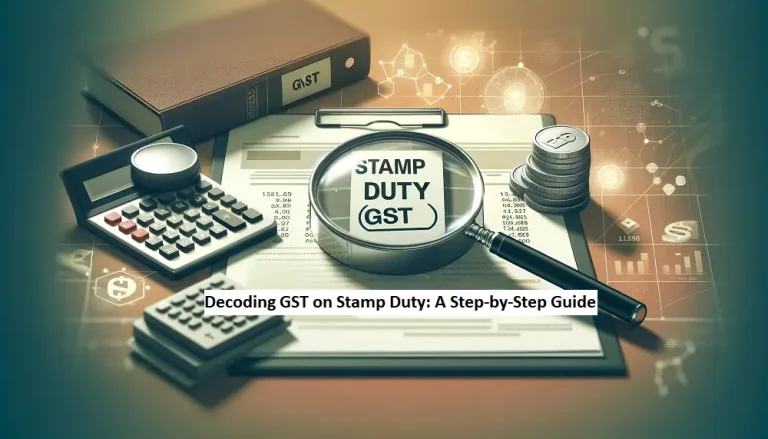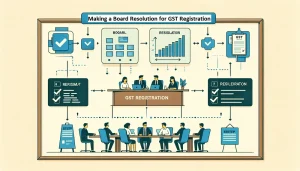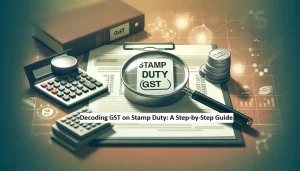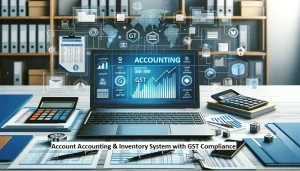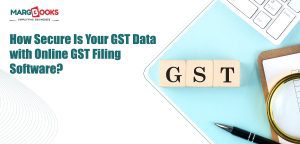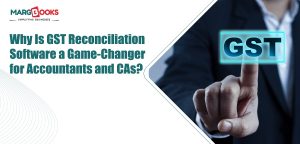Understanding how GST (Goods and Services Tax) and stamp duty work together can be quite challenging. Both are very important parts of the Indian taxation system and have a significant impact on various financial transactions, especially in the real estate sector. In this detailed guide, we will explain the details of GST on stamp duty. We will provide a clear and thorough explanation of how these taxes work, what their implications are, and the steps you can take to handle them effectively.
What is GST?
GST, or Goods and Services Tax, is a comprehensive indirect tax that is imposed on the supply of goods and services in India. This tax was introduced on July 1, 2017, to replace several indirect taxes that were previously levied by both the central and state governments, such as VAT (Value Added Tax), service tax, and excise duty. The primary aim of GST is to simplify the tax structure, increase transparency, and create a unified market across India. GST is divided into three categories:
- CGST (Central Goods and Services Tax)
- SGST (State Goods and Services Tax)
- IGST (Integrated Goods and Services Tax)
The type of GST applicable depends on the nature of the transaction.
What is GST on Stamp Duty?
Stamp duty is a tax levied by the government on legal documents, which is usually in the context of property transactions. This tax serves as proof of the transaction and is mandatory for the document to be legally valid. The rate of stamp duty varies from state to state in India and is calculated based on either the transaction value or the property’s market value, whichever is higher. Stamp duty is a one-time payment, typically borne by the buyer in property transactions.
Is GST Applicable on Stamp Duty?
A common question that arises is whether GST is applicable on stamp duty. The straightforward answer is no. GST and stamp duty are two separate taxes that function independently of each other. Stamp duty is a tax imposed by the state government on the execution of legal documents, whereas GST is a tax imposed by the central government on the supply of goods and services. Since stamp duty is a tax on legal documents, it is not covered under the scope of GST.
Impact of GST on Real Estate Transactions
GST has had a significant impact on the real estate sector. Let’s break down how GST affects various components of real estate transactions:
1. Construction Services
When you purchase an under-construction property, GST is applicable. The current GST rate for under-construction properties is 5% for non-affordable housing and 1% for affordable housing. This GST is applied to the total sale value of the property, excluding the value of the land. Builders can claim input tax credit (ITC) on the GST paid for construction materials and services, though the benefit of ITC may not always be passed on to the buyers.
2. Ready-to-Move-In Properties
GST is not applicable on the purchase of ready-to-move-in properties, as this type of sale is considered a supply of immovable property, which falls outside the scope of GST. However, stamp duty and registration charges still apply to these transactions.
3. Rental Income
Rental income from commercial properties is subject to GST. The applicable rate is 18%, and landlords must register under GST if their annual rental income exceeds the prescribed threshold limit. For residential properties rented out for personal use, GST is not applicable.
Calculation of GST on Stamp Duty in Property Transactions
To better understand the financial implications, let’s consider an example of an under-construction property purchase.
Example:
Assume you are purchasing an under-construction apartment valued at ₹50 lakhs. The stamp duty rate in your state is 6%.
Stamp Duty Calculation:
- Stamp Duty = 6% of ₹50,00,000
- Stamp Duty = ₹3,00,000
GST Calculation:
- Assume the GST rate is 5%.
- GST = 5% of ₹50,00,000
- GST = ₹2,50,000
In this example, you will need to pay ₹3,00,000 as stamp duty and ₹2,50,000 as GST, totaling ₹5,50,000 in taxes.
Compliance and Documentation
1. Paying Stamp Duty
The process of paying stamp duty involves several steps. You can pay stamp duty through various methods, such as e-stamping, franking, or purchasing stamp papers. Each state has its own procedures and authorized banks or agencies for stamp duty payment. It is crucial to ensure the stamp duty is paid correctly to avoid any legal complications in the future.
2. GST Compliance
For builders and developers, complying with GST involves regular filing of GST returns, maintaining accurate records of input tax credit, and ensuring timely payment of GST. Buyers should ensure that the builder provides a proper GST invoice and that the GST paid is reflected in the final agreement.
Benefits and Challenges
Benefits of GST:
- Simplified Tax Structure: GST has replaced multiple taxes, reducing the complexity of tax compliance.
- Transparency: The unified tax system promotes transparency in real estate transactions.
- Input Tax Credit: Builders can claim input tax credit on the GST paid for construction materials and services.
Challenges:
- Increased Cost: GST on under-construction properties can increase the overall cost for buyers.
- Compliance Burden: Both builders and buyers must adhere to strict compliance requirements, which can be time-consuming.
Key Differences Between GST and Stamp Duty
While both GST and stamp duty are essential taxes, they serve different purposes and are applied differently.
Nature of Tax:
- GST: A consumption-based tax on the supply of goods and services.
- Stamp Duty: A tax on legal documents related to transactions.
Authority:
- GST: Levied by the central and state governments under the GST Act.
- Stamp Duty: Levied by state governments under the Indian Stamp Act and state-specific stamp acts.
Applicability:
- GST: Applicable on the supply of goods and services, including under-construction properties and rental income from commercial properties.
- Stamp Duty: Applicable on legal documents, such as property sale agreements, mortgage deeds, and lease agreements.
Recent Developments and Updates
The Indian government frequently updates tax laws and regulations, including those related to GST and stamp duty. It is essential to stay informed about these changes to ensure compliance and make informed decisions. Recent updates include changes in GST rates for under-construction properties, amendments in state-specific stamp duty rates, and introduction of new compliance measures.
Practical Tips for Buyers and Sellers
For Buyers:
- Understand the Tax Implications: Be aware of the GST and stamp duty rates applicable to your property transaction.
- Ensure Proper Documentation: Verify that all legal documents are duly stamped and that the GST invoice is provided by the builder.
- Consider Total Cost: Factor in both GST and stamp duty when calculating the total cost of purchasing a property.
For Sellers and Builders:
- Maintain Compliance: Ensure timely filing of GST returns and payment of taxes.
- Provide Clear Information: Offer clear information to buyers regarding the GST and stamp duty applicable to their purchase.
- Claim Input Tax Credit: Utilize input tax credit effectively to reduce the tax burden.
Conclusion
Navigating the complexities of GST and stamp duty can be challenging, but understanding the fundamentals and staying informed about the latest updates can make the process more manageable. Whether you are a buyer, seller, or real estate professional, being well-versed in these taxes will help you make informed decisions and ensure compliance with the law. Always consult with a tax advisor or legal expert to get personalized advice based on your specific situation.
Also Read:
- What is Goods and Service Tax (GST)?Let’s discuss Goods and Service Tax (GST). In India, GST affects most purchases or sales made. Imagine it as an added fee on everyday items we use like groceries. This is essential both to businesses as well as everyday people… Read more: What is Goods and Service Tax (GST)?
- A Simple Guide to Making a Board Resolution for GST RegistrationRegistering for Goods and Services Tax (GST) is an essential step for businesses in India. This step not only ensures compliance with the law but also boosts the credibility of a business and opens up broader opportunities. One important part… Read more: A Simple Guide to Making a Board Resolution for GST Registration
- Decoding GST on Stamp Duty: A Step-by-Step GuideUnderstanding how GST (Goods and Services Tax) and stamp duty work together can be quite challenging. Both are very important parts of the Indian taxation system and have a significant impact on various financial transactions, especially in the real estate… Read more: Decoding GST on Stamp Duty: A Step-by-Step Guide
- The ABCs of Account Accounting & Inventory System with GST ComplianceIn today’s fast-paced business world, keeping track of money and goods is crucial. That’s where an account accounting and inventory management system with GST compliance comes in. Let’s break down what it is, why it’s essential, and why using a… Read more: The ABCs of Account Accounting & Inventory System with GST Compliance
Frequently Asked Questions
What is GST on Stamp Duty?
GST on Stamp Duty is a tax levied on the service of providing stamp duty. This tax applies to the service provided by the government or authorized agencies for issuing stamps required for various legal documents. Stamp duty is a state subject, and GST is a central tax, so the interaction between the two can sometimes be complex.
Who is liable to pay GST on Stamp Duty?
Generally, the liability to pay GST on Stamp Duty falls on the service provider, which is usually the government or authorized agencies issuing stamps. However, in some cases, the liability may be transferred to the service recipient under reverse charge mechanism if they are a business entity.
What is the rate of GST on Stamp Duty?
The rate of GST on Stamp Duty can vary depending on the type of stamp duty and the state in which it is levied. As of now, the GST rate on stamp duty is generally 18%. However, it’s essential to check the specific rates applicable in your state for accurate information.
Are there any exemptions from GST on Stamp Duty?
Yes, certain exemptions from GST on Stamp Duty may apply. For example, stamp duty on certain instruments like negotiable instruments, insurance policies, and court fees may be exempt from GST. Additionally, exemptions may vary from state to state, so it’s crucial to check the specific rules in your jurisdiction.
How is GST calculated on Stamp Duty?
GST on Stamp Duty is calculated by applying the applicable GST rate to the value of the stamp duty. The value of the stamp duty is typically the amount specified in the document for which the stamp is being issued. For example, if the stamp duty value is ₹1,000 and the GST rate is 18%, the GST amount would be ₹180.
Can GST input tax credit be claimed on Stamp Duty?
Generally, GST input tax credit cannot be claimed on Stamp Duty as it is a statutory fee and not considered as a supply of goods or services. However, there may be some exceptions where input tax credit can be claimed, such as when the stamp duty is incurred for furtherance of business activities subject to specific conditions.
How to pay GST on Stamp Duty?
GST on Stamp Duty is typically paid at the time of purchasing the stamp or when the stamp duty document is executed. The payment is made to the government or authorized agencies responsible for collecting stamp duty. Payment methods may vary depending on the jurisdiction, but commonly include online payment options, banks, or designated offices.
What are the consequences of non-payment of GST on Stamp Duty?
Non-payment of GST on Stamp Duty can lead to penalties and legal consequences. It’s essential to comply with GST regulations to avoid any potential fines or enforcement actions by the tax authorities. Additionally, non-compliance can negatively impact business operations and reputation.
Can individuals claim GST refund on Stamp Duty?
Generally, individuals cannot claim GST refund on Stamp Duty as it is not considered as an input tax for them. GST refunds are primarily available to registered businesses for taxes paid on inputs used in the course of business activities. However, specific rules may apply in certain cases, so it’s advisable to consult with a tax professional.
Is GST on Stamp Duty applicable uniformly across India?
No, GST on Stamp Duty is not applicable uniformly across India. While GST is a central tax, stamp duty is a state subject, and each state has its own laws and regulations regarding stamp duty and its interaction with GST. Therefore, the applicability and rates of GST on Stamp Duty may vary from state to state.

